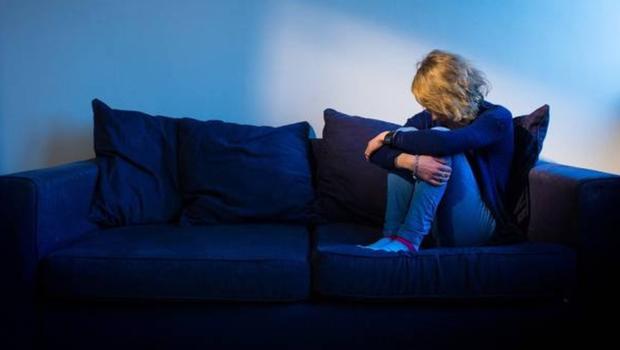By Aislinn O’Keefe
According to a 2018 OECD survey, one in six people across Europe are living with a mental health problem, and more than 50% of people will experience mental health issues over the course of their lifetimes. Of the 36 countries surveyed, Ireland ranked joint third for the most instances of mental illness in the country.
In Ireland, mental health services are notoriously under resourced and underfunded. The Psychological Society of Ireland (PSI) reported in 2019, that 3,345 adults were on waiting lists for counselling appointments in Ireland, along with 2,500 children and teens, and a further 6,300 under 18-year old’s waiting for an initial primary care appointment. In 2018, the allocation to mental health in the health budget was just 6%, compared to 13% in the UK. Even before the crisis of the Covid-19 pandemic we had a mental health service incapable of meeting peoples’ everyday needs.
A new challenge
The challenges that are emerging during the coronavirus pandemic pose a number of social and economic issues, the effects of which will likely be felt for generations. Issues such as precarious and low-paid employment, increasingly unaffordable rent, homelessness and an underfunded health service, are now exacerbated with lay-offs in the hundreds of thousands posing a further cause of stress for those who are already struggling to keep up with payments.
While the government announcement of the shutdown of many non-essential workplaces is welcome, it does not go far enough and many workers carrying out non-essential work in factories and on building sites are still facing the added anxiety of facing workplaces with inadequate social distancing and sanitisation. Many are fearful that they may be exposing themselves and their loved ones to the deadly virus.
Self-isolation and social distancing, while necessary and unavoidable preventative measures in stemming the virus, pose further mental health dangers. Isolation and loneliness are some of the most detrimental causes of mental illness, this is compounded by the fear and anxiety that people are currently experiencing due to the uncertainty of the situation we find ourselves in. Usual outlets such as socialising, meeting with family and friends, gym visits, arts and sports events, and much more are now off-limits meaning that many will now struggle to maintain their mental health.
What measures are needed
It is crucial now that measures are put in place to cope with the inevitable mental health challenges we face. There is much we can and should do within our communities and there is much that the government can do to facilitate and promote positive mental health throughout Irish society. In addition to ensuring financial stability for people (such as forcing landlords to waive rent payments, guaranteeing full pay for those workers impacted by COVID-19 etc.), the government must now also initiate a programme of online counselling for those in need for the duration of the crisis.
Online services
The moratorium for health workers has been lifted and the same now should apply for mental health workers who are equally required during this time. An online system should be put in place that facilitates an initial meeting following which service users will be referred to the relevant therapist. This is a demand that is being put forward by the Stand Up for Mental Health campaign (SUMH- sign their petition here- https://my.uplift.ie/petitions/public-online-counselling-service-now ). A telephone service should accompany this for those who do not have adequate internet access. Those using medication for mental health issues must also be guaranteed ongoing, and safe access to this. The unnecessary requirement of two doctor appointments, and the three day wait for those seeking abortion medication must also be abolished.
There have been heartwarming images of people exercising out in the open on their local streets while maintaining social distancing, the state could organise events like these in areas around the country in parks and large outdoor areas with strict distancing measures in place. The state could also commission some basic TV shows providing mental health information to be broadcast on RTÉ. Programmes whereby a qualified psychologist could talk viewers through coping with anxiety and depression and giving viewers the opportunity to put forward questions and seek advice.
The wealth is there
The wealth is there to invest in our physical and mental health. We can utilise the €15 billion Apple tax which is currently sitting untouched in a bank account, and more generally we can seize the resources of the super-rich and big business, so they can be used for the benefit of all. Now more than ever, we need to prioritise the physical and mental health needs of society over private profit.
We are facing a crisis of unthinkable proportions and the actions of the government at this juncture will have a decisive impact on how this crisis unfolds, and ultimately how many lives are saved. But working-class solidarity – in all its manifestations – is also a crucial antidote to the despair that abounds in a crisis such as this. It is time to implement socialist policies, which are based on that working-class solidarity and put the needs of people, whatever they may be, above all else.
References:
https://www.theweek.co.uk/93320/fact-check-the-truth-about-mental-health-funding
https://www.thejournal.ie/mental-health-reform-budget-hse-4267595-Oct2018/
https://www.irishtimes.com/news/ireland/irish-news/more-than-2-500-children-teens-on-mental-health-service-waiting-lists-1.4012570
https://www.irishtimes.com/opinion/editorial/the-irish-times-view-on-mental-health-funding-a-chance-to-improve-1.3663451
https://www.mentalhealth.org.uk/sites/default/files/MHF-tackling-inequalities-report_WEB.pdf
https://www.apa.org/monitor/2012/06/roots
https://doras.org/direct-provision/
http://travellercounselling.ie/the-traveller-community/traveller-mental-ealth/












